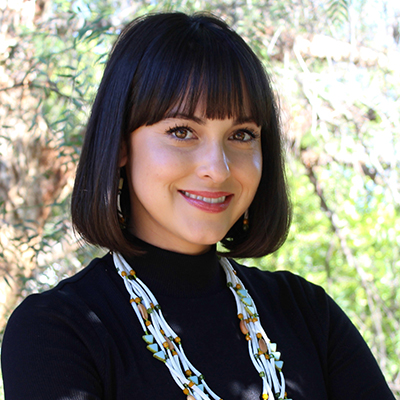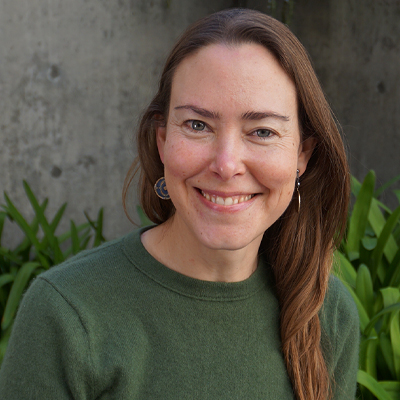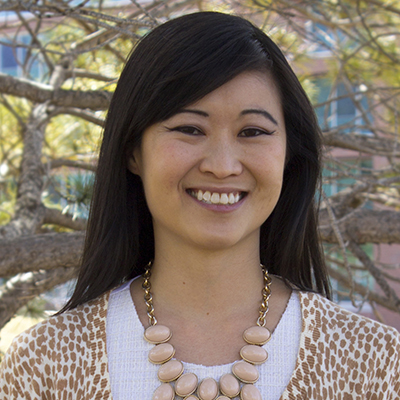People
Director
Joseph A. Stramondo
Ph.D. (Philosophy, Michigan State University), M.A. (Public Policy Studies, Trinity College, Hartford CT)
Email: [email protected]
 Dr. Stramondo (he/him/his) is an Associate Professor of Philosophy and Humanities, as well as the Interim Chair of Classics and Humanities at San Diego State University. During the 22-23 Academic Year, he was the Hubert Mader Visiting Professor in Bioethics at the Albert Gnaegi Center for Healthcare Ethics at Saint Louis University. His research focuses on the intersection of biomedical ethics and philosophy of disability. Namely, he is concerned with how bioethics can be reframed by centering the lived experiences of disability as a crucial source of moral knowledge that should guide clinical practice, biomedical research, and health policy. He has published scholarship on topics ranging from informed consent procedures to reproductive ethics to pandemic triage protocols to assistive neurotechnology. His work appears in venues such as The Hastings Center Report, Ethical Theory and Moral Practice, Ergo, Clinical Ethics, Utilitas, Social Theory and Practice, the Kennedy Institute for Ethics Journal, Theoretical Medicine and Bioethics, the International Journal of Feminist Approaches to Bioethics, Social Philosophy Today, and several scholarly book collections. He is devoting most of his present research effort to developing a book manuscript that is tentatively titled The Ethics of Choosing Disability, which is under contract with Oxford University Press.
Dr. Stramondo (he/him/his) is an Associate Professor of Philosophy and Humanities, as well as the Interim Chair of Classics and Humanities at San Diego State University. During the 22-23 Academic Year, he was the Hubert Mader Visiting Professor in Bioethics at the Albert Gnaegi Center for Healthcare Ethics at Saint Louis University. His research focuses on the intersection of biomedical ethics and philosophy of disability. Namely, he is concerned with how bioethics can be reframed by centering the lived experiences of disability as a crucial source of moral knowledge that should guide clinical practice, biomedical research, and health policy. He has published scholarship on topics ranging from informed consent procedures to reproductive ethics to pandemic triage protocols to assistive neurotechnology. His work appears in venues such as The Hastings Center Report, Ethical Theory and Moral Practice, Ergo, Clinical Ethics, Utilitas, Social Theory and Practice, the Kennedy Institute for Ethics Journal, Theoretical Medicine and Bioethics, the International Journal of Feminist Approaches to Bioethics, Social Philosophy Today, and several scholarly book collections. He is devoting most of his present research effort to developing a book manuscript that is tentatively titled The Ethics of Choosing Disability, which is under contract with Oxford University Press.
Associate Director
Charmane M. Perry
Ph.D. (Africology, University of Wisconsin Milwaukee.)
Email: [email protected]
 Dr. Perry is an Associate Professor in the Department of Africana Studies. As an Africologist, Perry is trained in the discipline of Black Studies receiving her B.A. in African American Studies from Temple University, a M.A. in Pan African Studies from Syracuse University, and a Ph.D. in Africology from the University of Wisconsin Milwaukee. Her research interests concern how race and racism play out in different geographical contexts for Black people, from the Caribbean to the United States. As a daughter of the Haitian diaspora, her current research examines the experiences of stigma, identity, and citizenship among second-generation Haitians in The Bahamas. Her publications have appeared in Latin American and Caribbean Ethnic Studies, Identities: Global Studies in Culture and Power, Ethnicities, and International Journal of Bahamian Studies. As a Philadelphia native, her next research project will explore Black Philadelphia and their efforts to desegregate Girard College, a private boarding school created for white orphaned boys in 1848, located in the heart of Black North Philadelphia.
Dr. Perry is an Associate Professor in the Department of Africana Studies. As an Africologist, Perry is trained in the discipline of Black Studies receiving her B.A. in African American Studies from Temple University, a M.A. in Pan African Studies from Syracuse University, and a Ph.D. in Africology from the University of Wisconsin Milwaukee. Her research interests concern how race and racism play out in different geographical contexts for Black people, from the Caribbean to the United States. As a daughter of the Haitian diaspora, her current research examines the experiences of stigma, identity, and citizenship among second-generation Haitians in The Bahamas. Her publications have appeared in Latin American and Caribbean Ethnic Studies, Identities: Global Studies in Culture and Power, Ethnicities, and International Journal of Bahamian Studies. As a Philadelphia native, her next research project will explore Black Philadelphia and their efforts to desegregate Girard College, a private boarding school created for white orphaned boys in 1848, located in the heart of Black North Philadelphia.
Core Faculty
Olivia Chilcote
Ph.D. ( Ethnic Studies, University of California, Berkeley)
Email: [email protected]
 Dr. Olivia Chilcote (she/her/hers) is a tribal citizen of the San Luis Rey Band of Mission Indians and an Assistant Professor of American Indian Studies at SDSU. Her research and teaching focus on the areas of interdisciplinary American Indian Studies, California Indian Studies, federal Indian policy, American Indian identity, and Indigenous feminisms. Her first book, Unrecognized in California: Federal Acknowledgment and the San Luis Rey Band of Mission Indians (University of Washington Press, 2024), examines the distinct crisis of tribal federal recognition in California, the state with the most unrecognized tribes in the country, and demonstrates how these tribes assert inherent legal powers to maintain community identity and rights to self-determination despite legal status. Dr. Chilcote's current manuscript project, Cháam Qéchyam: Reclaiming the San Luis Rey Village in California History, utilizes Indigenous feminist paradigms to alter accepted understandings of Luiseño/Payómkawichum peoples through community engaged and place-based reclamation processes. Her writing has appeared or is forthcoming in California History, American Indian Culture and Research Journal, the Smithsonian's Handbook of the North American Indians, Boletín: Journal of the California Missions Studies Association, and News From Native California.
Dr. Olivia Chilcote (she/her/hers) is a tribal citizen of the San Luis Rey Band of Mission Indians and an Assistant Professor of American Indian Studies at SDSU. Her research and teaching focus on the areas of interdisciplinary American Indian Studies, California Indian Studies, federal Indian policy, American Indian identity, and Indigenous feminisms. Her first book, Unrecognized in California: Federal Acknowledgment and the San Luis Rey Band of Mission Indians (University of Washington Press, 2024), examines the distinct crisis of tribal federal recognition in California, the state with the most unrecognized tribes in the country, and demonstrates how these tribes assert inherent legal powers to maintain community identity and rights to self-determination despite legal status. Dr. Chilcote's current manuscript project, Cháam Qéchyam: Reclaiming the San Luis Rey Village in California History, utilizes Indigenous feminist paradigms to alter accepted understandings of Luiseño/Payómkawichum peoples through community engaged and place-based reclamation processes. Her writing has appeared or is forthcoming in California History, American Indian Culture and Research Journal, the Smithsonian's Handbook of the North American Indians, Boletín: Journal of the California Missions Studies Association, and News From Native California.
Raechel Dumas
Ph.D. (Japanese, University of Colorado at Boulder)
Email: [email protected]
 Dr. Dumas (she/her/hers) is an Associate Professor of History at SDSU. She is a specialist in modern Japan, with emphasis in the histories of literature and visual culture. Her research focuses on contemporary Japanese popular culture, and especially the gender and sexual politics of dark genres including horror, crime fiction, and science fiction. Her other interests include the gender politics of global crime and horror fiction; trauma narratives; and feminist, psychoanaytic, and affect theories. She is the author of The Monstrous-Feminine in Contemporary Japanese Popular Culture (Palgrave Macmillan, 2018). Her work has appeared or is forthcoming in the journals Revenant, English Language Notes, Journal of Popular Culture, Extrapolation, Science Fiction Studies, Supernatural Studies, Electronic Journal of Contemporary Japanese Studies, Japanese Journal of Religious Studies, Quarterly Review of Film and Video, and South Atlantic Review.
Dr. Dumas (she/her/hers) is an Associate Professor of History at SDSU. She is a specialist in modern Japan, with emphasis in the histories of literature and visual culture. Her research focuses on contemporary Japanese popular culture, and especially the gender and sexual politics of dark genres including horror, crime fiction, and science fiction. Her other interests include the gender politics of global crime and horror fiction; trauma narratives; and feminist, psychoanaytic, and affect theories. She is the author of The Monstrous-Feminine in Contemporary Japanese Popular Culture (Palgrave Macmillan, 2018). Her work has appeared or is forthcoming in the journals Revenant, English Language Notes, Journal of Popular Culture, Extrapolation, Science Fiction Studies, Supernatural Studies, Electronic Journal of Contemporary Japanese Studies, Japanese Journal of Religious Studies, Quarterly Review of Film and Video, and South Atlantic Review.
Priya Kandaswamy
Ph.D. (Ethnic Studies, University of California, Berkeley, 2006)
Email: [email protected]
 Priya Kandaswamy’s research and teaching explore how race, gender, sexuality, and class have shaped ideas of national belonging and practices of state violence in the United States. She is the author of Domestic Contradictions: Race and Gendered Citizenship from Reconstruction to Welfare Reform (Duke University Press, 2021), which documents how constructions of gendered citizenship articulated to curtail Black freedom during the Reconstruction Era continue to haunt more contemporary debates about public assistance and economic inequality in the United States. Bringing together insights from queer studies, feminist studies, and ethnic studies, her work is engaged with and deeply indebted to historical and contemporary movements for welfare rights, domestic workers’ rights, reproductive justice, prison abolition, and liberatory education. Prior to joining the faculty at San Diego State University, she was professor and chair of Women’s, Gender, and Sexuality Studies at Mills College and the academic program director at Mt. Tamalpais College, a community college that serves incarcerated students at San Quentin State Prison.
Priya Kandaswamy’s research and teaching explore how race, gender, sexuality, and class have shaped ideas of national belonging and practices of state violence in the United States. She is the author of Domestic Contradictions: Race and Gendered Citizenship from Reconstruction to Welfare Reform (Duke University Press, 2021), which documents how constructions of gendered citizenship articulated to curtail Black freedom during the Reconstruction Era continue to haunt more contemporary debates about public assistance and economic inequality in the United States. Bringing together insights from queer studies, feminist studies, and ethnic studies, her work is engaged with and deeply indebted to historical and contemporary movements for welfare rights, domestic workers’ rights, reproductive justice, prison abolition, and liberatory education. Prior to joining the faculty at San Diego State University, she was professor and chair of Women’s, Gender, and Sexuality Studies at Mills College and the academic program director at Mt. Tamalpais College, a community college that serves incarcerated students at San Quentin State Prison.
Christine Knott
Ph.D. (Sociology, Memorial University of Newfoundland and Labrador)
Email: [email protected]
 Dr. Christine Knott's (she/her) in an interdisciplinary scholar with a B.A. in Anthropology and Women’s Studies from McGill University, and a Masters in Women’s Studies and a Ph.D. in Sociology from Memorial University of Newfoundland and Labrador. Her research draws on existing feminist scholarship and anti-oppressive intersectional framework to explore how political, ecological, economic, and corporate influences (across multiple scales) are reconfiguring ocean spaces and coastal communities in unequal ways. Her work builds on intersectional climate and environmental justice literatures that draw from intersectional feminist political ecology and anti-colonial works to create grounded, collaborative, and community-based research. These explorations allow Dr. Knott to investigate interactions among resource dependent communities, government policies, global corporate capitalism, labour mobility regimes, and animal enclosure and commodification. Her research findings on these topics can be found in articles published in the Canadian Journal of Sociology, Marine Policy, Maritime Studies, Acadiensis, Gender, Place and Culture, ICES Journal of Marine Science, International Migration, Journal of Agrarian Change, Geoforum, and Applied Mobilities.
Dr. Christine Knott's (she/her) in an interdisciplinary scholar with a B.A. in Anthropology and Women’s Studies from McGill University, and a Masters in Women’s Studies and a Ph.D. in Sociology from Memorial University of Newfoundland and Labrador. Her research draws on existing feminist scholarship and anti-oppressive intersectional framework to explore how political, ecological, economic, and corporate influences (across multiple scales) are reconfiguring ocean spaces and coastal communities in unequal ways. Her work builds on intersectional climate and environmental justice literatures that draw from intersectional feminist political ecology and anti-colonial works to create grounded, collaborative, and community-based research. These explorations allow Dr. Knott to investigate interactions among resource dependent communities, government policies, global corporate capitalism, labour mobility regimes, and animal enclosure and commodification. Her research findings on these topics can be found in articles published in the Canadian Journal of Sociology, Marine Policy, Maritime Studies, Acadiensis, Gender, Place and Culture, ICES Journal of Marine Science, International Migration, Journal of Agrarian Change, Geoforum, and Applied Mobilities.
Diana Leong
Ph.D. (Culture and Theory with emphases in Critical Theory and Science and Technology Studies, University of California, Irvine)
Email: [email protected]
 Dr. Leong (she/her/hers) is an Assistant Professor of English and Comparative Literature. Her research and teaching focuses on environmental justice, black literature, science and speculative fiction, and the environmental humanities (e.g., posthumanism, science and technology studies, animal studies, new materialisms). She is currently completing a monograph, Against Wind and Tide: Toward a Slave Ship Ecology, that theorizes the slave ship as a site for the material and imaginative convergence of environmental justice and abolitionism. Dr. Leong received her Ph.D. in Culture and Theory with emphases in Critical Theory and Science and Technology Studies from the University of California, Irvine. Her work has appeared in publications like ISLE, Catalyst: Feminism, Theory, Technoscience, Configurations, The Digital Review, and The Palgrave Handbook of Animals and Literature.
Dr. Leong (she/her/hers) is an Assistant Professor of English and Comparative Literature. Her research and teaching focuses on environmental justice, black literature, science and speculative fiction, and the environmental humanities (e.g., posthumanism, science and technology studies, animal studies, new materialisms). She is currently completing a monograph, Against Wind and Tide: Toward a Slave Ship Ecology, that theorizes the slave ship as a site for the material and imaginative convergence of environmental justice and abolitionism. Dr. Leong received her Ph.D. in Culture and Theory with emphases in Critical Theory and Science and Technology Studies from the University of California, Irvine. Her work has appeared in publications like ISLE, Catalyst: Feminism, Theory, Technoscience, Configurations, The Digital Review, and The Palgrave Handbook of Animals and Literature.
Erika Rodriguez
Ph.D. (Comparative Literature, Washington University in St. Louis)
Email: [email protected]
 Dr. Erika Rodriguez (they/them, she/her) is an Assistant Professor of Spanish. Their research probes the entangled ethical debates over population control and the construction of disability at the turn of the twentieth century. Rodriguez’s current book project, Disabling Progress: Degeneration, Eugenics, and Futurity in Modern Spain, scrutinizes the connective tissue between visions of progress in degeneration theories and early eugenics, and examines how Spanish authors challenged the social values that cast abject bodies as threats to the national future. Their second major project will continue to examine disability, economy, and political personhood by turning to representations of labor movements in Catalan, Cuban, and Filipino literature. You can find Rodriguez’s publications on critical disability studies and Iberian culture studies in Disability Studies Quarterly, the Revista Canadiense de Estudios Hispánicos, and the Hispanic Research Journal.
Dr. Erika Rodriguez (they/them, she/her) is an Assistant Professor of Spanish. Their research probes the entangled ethical debates over population control and the construction of disability at the turn of the twentieth century. Rodriguez’s current book project, Disabling Progress: Degeneration, Eugenics, and Futurity in Modern Spain, scrutinizes the connective tissue between visions of progress in degeneration theories and early eugenics, and examines how Spanish authors challenged the social values that cast abject bodies as threats to the national future. Their second major project will continue to examine disability, economy, and political personhood by turning to representations of labor movements in Catalan, Cuban, and Filipino literature. You can find Rodriguez’s publications on critical disability studies and Iberian culture studies in Disability Studies Quarterly, the Revista Canadiense de Estudios Hispánicos, and the Hispanic Research Journal.
